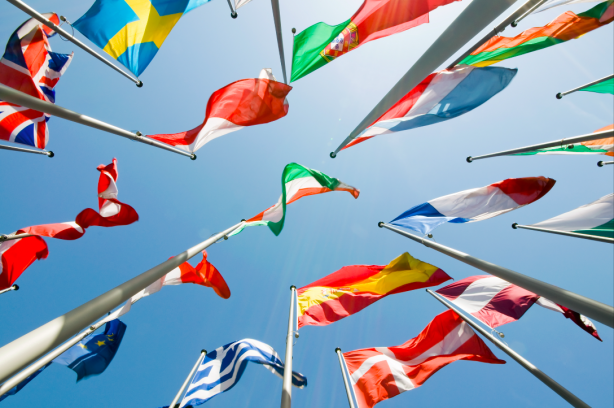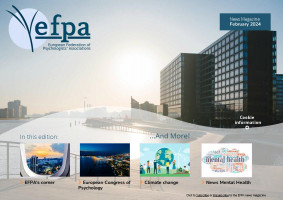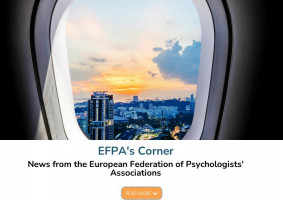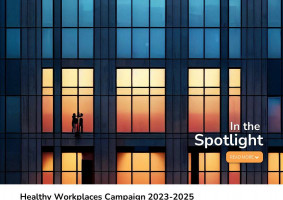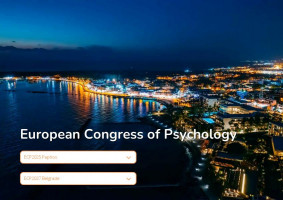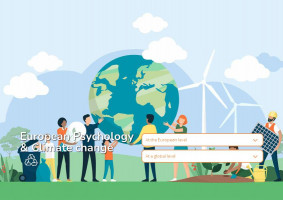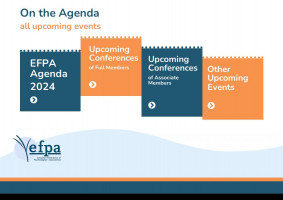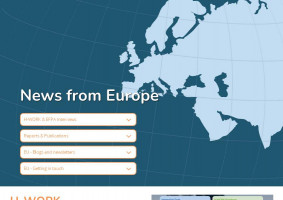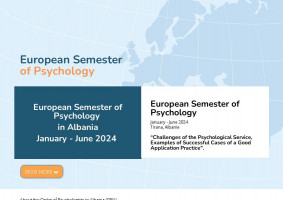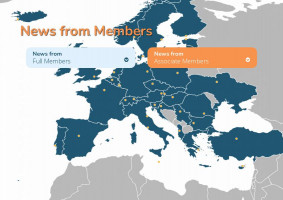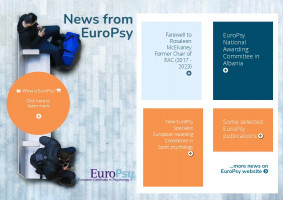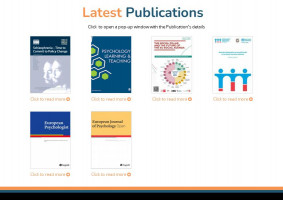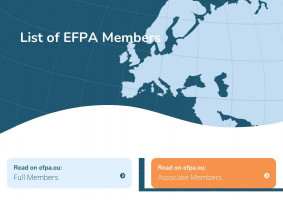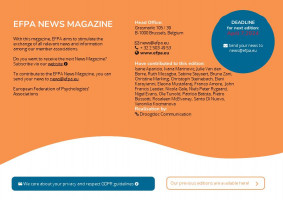The H-Work platform aims to help employers, HR managers, and OHS professionals address mental health at their workplace based on EU- funded international scientific research. The knowledge generated during H-WORK has been compiled into the innovation platform which provides accessible digital resources to enhance workplace well-being.
The platform features tools such as benchmarking, a support system for organisational interventions and an economic calculator. Notably, it draws insights from international scientific research funded by the EU, offering a wealth of collaborative expertise.
_w732_h368_1.jpg)
-
1. The benchmarking tool: discover how your organization is doing compared to other similar organiations.
2. The decision support system: make a snapshot of the situation at your organization and see which action for improvement might be implemented.
3. H-Work Economic Calculator: calculates how much money your organization could save by carrying out mental health actions.Fold out to read more
Policy Briefs and recommendations
1. Recommendations on Digital Interventions for Employee Well-Being and Teamwork
2. Selecting interventions based on workers' needs: Why and how to ensure participation
3. Making room for Mental Health: Recommendations from Psychologists to
4. Mental Health and Wellbeing in Small and Medium Sized Enterprises (SMEs) – Reflecting the needs of SME’s in intervention design and implementation’
5. Training for workplace mental health promotion (MHP)
6. Mental Health and Wellbeing in Small and Medium-Sized Enterprises – The Role of Social partners
7. Improving Workplace mental health: The role of EU policy maker
8. Economic Benefits of Promoting Mental Health in SME’s and Public Organisations
9. Social Media and mental health at work: recommendations for managers
10. Implementing Artificial Intelligence for Promoting Well-being in Organisations
Policy briefs
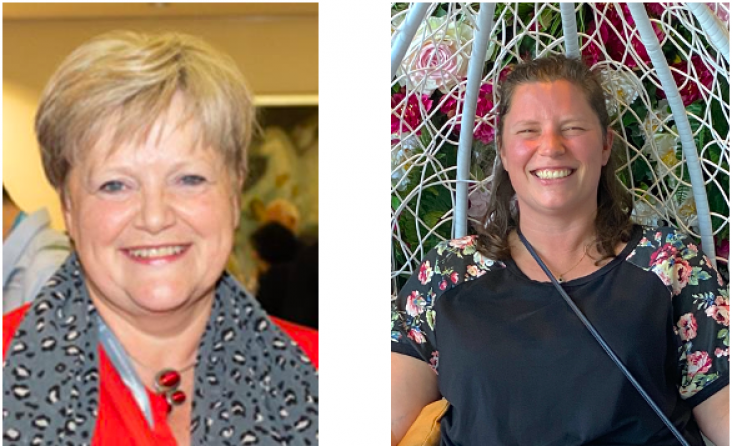
Feb 19, 2024/SS
When I was approached in 2018 by Prof Luca Pietrantoni and Dr Marco de Angelis from the University of Bologna to participate in a prestigious EU project called H-WORK, I was unsure whether EFPA was ready for this. With a total budget of 4 million EURO, of which almost 100,000 EUR for EFPA, an extensive range of tasks from dissemination to writing policy briefs and recommendations, in collaboration with 14 partners from all over Europe, this assignment of initially 42 months seemed quite a challenge. But we rose to the challenge and it became a great success.
With only a small team of eventually 5 people: Julie Van den Borre, Bruna Zani, Ole Tunold and later Christine Marking who joined us in the last year of the project and myself, we delivered work we can be rightly proud of. We ensured a continuous flow of information on the work, interim results, publications, regular interviews with the participants. We organised events at conferences, key info moments at European Commission and European Parliament level and met a lot of Mental Health stakeholders.
However, the circumstances were not ideal at the beginning. We started with a kickoff meeting in January 2020 in Bologna and then came the corona pandemic.
Needless to say, this changed everything, people switched to online meetings, all congresses and events that had been planned were eventually cancelled or moved to later dates. This obviously affected the performance of a lot of tasks, especially as far as the work of our colleagues’ researchers was concerned.
But as soon as we could, in summer 2022, we were able to meet again and show first results of the project. I would like to refer to the European EFPA congresses, e.g. in Ljubljana in 2022, Brighton in 2023, the EAWOP congress in Katowice in May 2023, the EAOHP congress in Bordeaux 2022, SIOP Congress in Boston (USA) and many other events where our partners presented the first interim results at symposia and round tables.
And there is a lot to present: a unique Innovation platform, policy briefs, recommendations, which you can find at the Mental Health at Work Platform.
H-WORK has recently been selected as ‘Good practice 2023’ by the EU Best Practices Portal. At the moment I am writing this, it has not been announced on the website yet, but keep an eye on it here. The presentation of H-WORK is scheduled on March 11-13 on Market place on the Best Practices Portal.
Overall it has been a very interesting experience, and we would like to thank all our partners in the H-WORK consortium, in particular the UNIBO Team under the lead of Luca Pietrantoni, Marco De Angelis and Davide Giusino.
Special thanks to:
Robert Anderson, Former Head of Social Policies Unit at Eurofound and
Tom Van Daele – Convenor of the EFPA WG eHealth, Thomas More Univerity of Applied Sciences Antwerp, who were both the external reviewers of our policy briefs.
Richard Wynne, European Network for Workplace Health Promotion ENWHP, for the excellent collaboration during the project
The members of the EFPA Board of Directors, in particular Nicola Gale and John Francis Leader, who helped us in successfully promoting the project on the European level.
-
(To) be a bridge EFPA-UNIBO
By Bruna Zani
I was a member of EFPA Executive Council when we started talking about the possibility that EFPA could participate in research at European level with an active role, and not simply as a contribution to dissemination between Member states.
I remember that there were quite heated discussions with different positions linked above all to the administrative and personnel problems that this involvement required and which EFPA was not able to support. My position was clear right from the start and I am still convinced that for EFPA it is important to be involved in support of scientific research on issues that concern psychology in all its facets and dimensions.
The discussion took place because there were some proposals on the table for EFPA's involvement in some calls relating to the European tender which was about to expire: among these that of H-Work. It was a question of responding to a complex and demanding challenge, because only few proposals would be accepted with a two-step process.
Fold out to read further I expressed myself in favour, trying to convince even reluctant colleagues of EC to join, not only because I knew the proposing team very well, coming from the same background as me, UNIBO, and from one of my former students and then collaborators, as PI, but because I was completely sure of the quality of the proposed project, the accuracy of the plan, even if a little concerned about the breadth of the partnership (14 teams in x countries)
But the challenge was too tempting to back down. And so, with a bit of trepidation we began to follow the path of the project through the tortuous passages of European bureaucracy: the project passed the first step and was admitted to the second step (together with others...), then it also passed the second step and was financed together with only 4 other sister projects on the same topic.
The adventure began in January 2020 with the kickoff meeting in Bologna. At that time, I was outside the EC, but thanks to Sabine and the new EC I was allowed to be present in the EFPA team to follow the project and at the same time be the trait-d'union with UNIBO. I thus took on various and unprecedented roles, initially “embedded journalist” (due to the idea of interviewing all the partners for the Newsmagazine) and in fact 14 interviews were published: an operation which was greatly appreciated by the partners themselves who introduced themselves to the others: Moreover, I was involved in the Work Packages (WP) of interest to EFPA, as the work for EU regulations for WP2. I participate as EFPA representative in seminars (see for example for the construction of the WP6 platform) also to make up for the difficulty of other EFPA members in being present and sharing the work with Sabine and Julie). All this work made it possible to enter into the relational dynamics of the partners and trying to support the role of EFPA in the project not only with a dissemination role among psychologists, but - especially in the last year, to take on a much more important function, of promoting the products and results achieved by the project at European level and with European stakeholders.
What were the strengths? The knowledge and familiarity with the UNIBO team was obviously an added value, which made it possible to resolve some problems that regularly emerge during international collaborations more quickly; the great mutual respect and empathy, based on the previous knowledge and work with Sabine and the EFPA team which made quick and mutually satisfying exchanges possible to deal with any problems that might arise, overcoming difficulties in understanding, moments of tiredness. I also want to mention Ole's support, as a liaison with the Board which has never failed and the fantastic collaboration with Christine in the last year of the project.
There were costs, of course, and at times they seemed greater than expected: effort, lack of time available, new aspects also on a financial and administrative level to be studied and implemented, a load on the shoulders of a couple of people in EFPA, often by just one person.
Frankly I can say that I willingly gave my time and competences to this project, which I believed in from the beginning, sharing it as EFPA and, to a small extent, also as UNIBO, constructing the bridge between the two bodies. I believe that it was an important opportunity for EFPA to make itself known outside the Psy world, making an essential and widely recognized contribution in the broadening of the target audience for its ability to forge links at a European level.
Of course, EFPA must provide itself with resources, but it would be a real shame not to continue this path.
Bruna Zani,
Former EFPA Executive Council member 2015-2019
Former member of the EFPA Board on Educational Affairs
Former board member of the European Community Psychology Association ECPA
_w438_h656_1.jpg)
-
Observations on H-WORK
By Ole Tunold, Vice President EFPA
Nearly four years ago, on a sunny January morning in Bologna, I had the privilege of attending the inception of H-Work. 14 keen and highly skilled partners from around Europe were gathered under the impressive and amiable stewardship of Professor Luca Pietrantoni and his UNIBO (University of Bologna) team. The H-WORK consortium had successfully landed this project in fierce competition with 130 other bidders. The size and scope of the project will remain a milestone in the history of applied psychology in Europe.
H-WORK aims “…to effectively promote mental health, along with policy recommendations for employers, occupational health professionals and policy makers…”.The project is a rare and brilliant example of bridging clinical/health psychology and work/organizational psychology. Two fields with obvious overlapping interests, but not so commonly explored and demonstrated.
The core remits of EFPA are to develop psychology, contribute to society and serve psychologists. H-Work directly and indirectly responds to all three. The goal of the EAWOP Impact Incubator is to engage, inform, and influence policymakers and policy-making across Europe on the basis of evidence and insights generated by Work & Organizational Psychology research and practice. H-WORK has the potential to do exactly that.
Fold out text to read further EFPA’s main task was to develop policy briefs – a task that proved very intense and required effort well beyond what was expected. The result is impressive: 11 policy briefs aimed at actual and potential stakeholders, providing concise and targeted information about how the H-Work may serve a multitude of needs in private companies and public organisations.
All in all, the H-Work has been a remarkable accomplishment, not least considering that a major part of it took place during the pandemic between 2020 and 2022. My only concern is that it may not reach its full potential unless it is carried forward. The partners have mostly concluded their work, and being mainly academic institutions, they move on to new pastures. I presume that the EU expects return of investment from the H-Work project. To reach its full potential, H-Work needs to be demonstrated, repeated, and refined in a broad selection of companies and services to obtain a reputation of a toolkit easily applied and providing solid and lasting effects. This will not happen solely based on publications. It takes success stories originated on ground level at these companies and services and spread through word-of-mouth, editorial acknowledgements, and trade reputation.Policy makers are used to the notion that mental health care is unilaterally a matter of grants and expenses. The idea that prevention is profitable, despite an initial cost, is less prevalent. To reduce personal suffering and by the same means obtain value added seems too good to be true. And yet it is true. My challenge to fellow psychologists throughout Europe is therefore: Take a look at H-Work, see if it can be useful in your own work and tell others about it.
It has been an enduring inspiration to follow the H-Work progress and the impressive, combined dedication from the partners through these four years. Congratulations to the EFPA team for this very successful accomplishment!
_w438_h316_1.jpg)
-
My involvement with H-WORK
by Christine Marking
I was contacted by Sabine Steyaert in June 2022; she asked me whether I would be able to contribute towards the development of the two policy briefs that EFPA was required to do for H-WORK, as well as contribute to the deliverables of WP2 relating to policy recommendations in the field of workplace mental health.
My reply was a resounding YES as the project and work required brought together both my background as a clinical psychologist as well as my day-to-day job as an EU policy advisor in the field of health and mental health.
The title of the first policy brief had already been agreed before I started and would address ‘recommendations to psychologists’. I felt a little daunted by that – so during the first ‘policy brief’ team meeting, I (hesitantly) proposed to change this to ‘recommendations from psychologists. To me, this was more in line with EFPA’s remit and provided more scope for actual recommendations – and I was pleased to note that this suggestion was immediately accepted! This made me feel that my role in the project and knowledge were valued and it helped me find my place in the team.
Fold out to read further
Starting on the policy recommendations for WP2, I was teamed up with Richard Wynne (ENWHP). We really took matters in hand, defining what was required and delivering on that: we provided an introduction into the role and remit of the EU institutions, a rationale for addressing this policy level (rather than the national), and a detailed mapping of the main EU-level players and their current relevant initiatives, all related to workplace mental health.
This work triggered the second policy brief, which truly focused on what the EU can and should do in relation to workplace mental health, containing concrete proposals for action and making use of existing policy ‘hooks. And I was delighted to be invited to present the work done by Richard and myself at a dedicated H-WORK session during the 2023 ECP conference in Brighton as well as be involved with the review of the second set of 6 policy briefs.
Obviously, a project can only influence reality and practice if its results are disseminated, so I was happy to provide a listing of relevant stakeholders to send the output and reports to.
The experience has been very positive. Apart from working on a highly relevant (policy) topic, working with the EFPA team and with ENWHP was fun and professional. So: from my part a wholehearted and warm ‘thank you’ to Sabine, Julie, Ole and Bruna – and of course to Richard – for the highly effective and pleasant cooperation!
Christine Marking
H-WORK Final event
September 29, 2023, Bologna, Italy/SS
The H-WORK project ended with a final event on September 29, 2023 in Bologna.
H-WORK findings, innovative tools for assessing needs and the protocols for realistic evaluation of interventions used in our test sites were presented. The many challenges faced during the implementation of different multi-level interventions as well as the lessons learnt were shared.
The final version of the Innovation Platform, a crucial project outcome, has been presented. The platform guides and assists key stakeholders – including employers, managers, SMEs and HR professionals – in assessing needs and selecting, implementing, and evaluating interventions to promote mental health in the workplace.
_w732_h386_1.png)
On the program:
1. Project Journey and Key Exploitable Results
2. Sharing achievements – Lessons learnt
3. Presentation of the H-WORK Innovation platform, H-WORK toolkits – Policy Briefs – Digital Interventions
4. Presentations, debates, roundtable discussionDistinguished keynote speakers were:
Frank Krause, human factors research scientist Dutch Organization for Applied Scientific Research, TNO) with a keynote on ‘Change - an ergonomist’s perspective on changing work, changing workload and changing workers’.
Sarah Copsey, senior project manager EU-OSHA, talked about ‘New challenges in psychosocial risk prevention’.

Belgian Presidency of the Council of EU: health related events
On the 1st of January, Belgium assumed the Presidency of the Council of the EU. During the 1st half of 2024, many events devoted to mental health will be organised.
You can see the list of foreseen events on the EFPA website Newsroom
_w1462_h666_1.jpg)
Feb 2024/ Nigel Evans, convenor EFPA Board of Assessment
An historic agreement has been reached with the Council of the European Union and the European Parliament on the proposal to set clear requirements and obligations on Artificial Intelligence. The EFPA Board of Assessment summarises and makes comment. The regulation aims to ensure trust and safety in AI by defining levels of risk and banning unacceptable risk applications. This is direct relevance to any professional who uses AI within their processes, either directly or on behalf of their organisation. Systems to determine access to educational institutions or for recruiting people are prime examples of high risk applications. So too are any system processes that link to determinations for health provision or access to essential services (like utilities, finance).
Designers and operators of these high-risk systems are required to comply with strict requirements. These include: risk-mitigation systems, high quality of data sets, logging of activity, detailed documentation, clear user information, human oversight, and a high level of robustness, accuracy and cybersecurity.
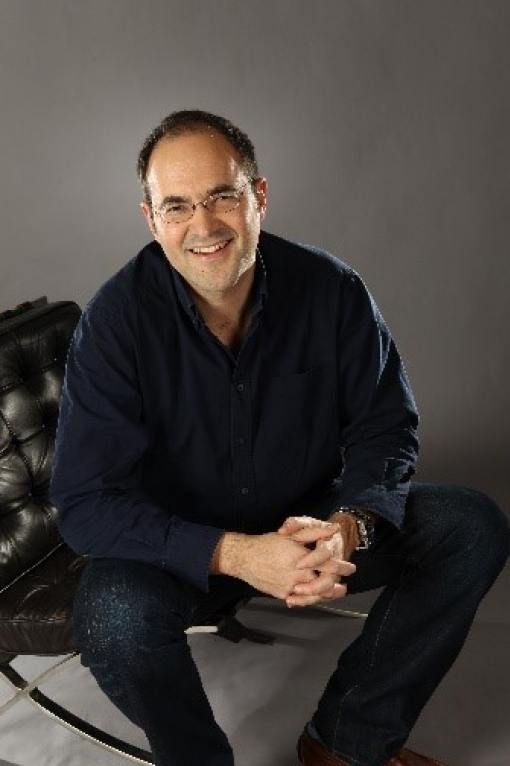
Nigel Evans, Chair of the EFPA Board of Assessment (BoA) made comment that “most, if not all, required elements of the new regulation parallel the expected quality methodology behind designing then using a good psychological testing and assessment process, especially when presented in a digital format.”
It was this aspect that led the EFPA Board of Assessment (BoA) to respond to EU AI regulatory proposals in Aug 2021. “Whilst we welcomed more guardrails on AI use in assessment systems, BoA urged the proposed areas of risk be proportionately categorised for existing psychological assessment across Work, Education and Health domains”, Nigel emphasised. “For example, the use of a simple digital scoring ‘algorithm’ could classify the test as AI driven, and thus high risk!”
It will take two years for the AI Act to be fully implemented, and within that time, rules will trialled to understand proportionality and effect – including those systems using AI in psychological assessment.
Interestingly the trial will not be restricted to the European Union. There is an ‘AI Pact’ bringing together EU and non-EU industry players in AI. More broadly most other countries are involved in the International Guiding AI Principles linking with G7, G20, OECD and UN initiatives.
Some may see AI regulation as stifling innovation. However, with senior big tech figures commenting on being cautious developing AI, some balance needs to be found.
None more so when systems significantly affect people lives as employees, students, patients and consumers.
Nigel Evans - Convenor EFPA Board of Assessment
Reference links:
Back to top
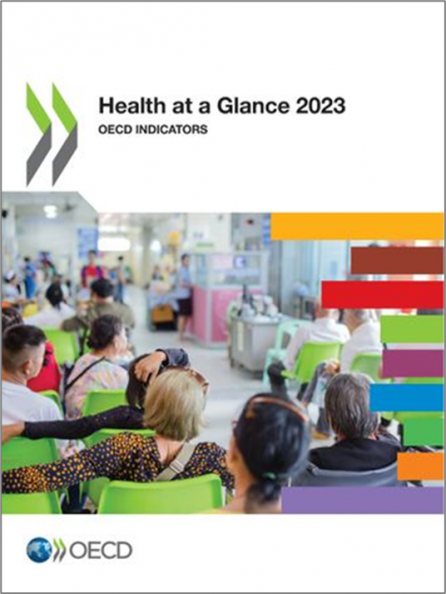
Health at a Glance 2023
OECD Indicators
Health at a Glance provides a comprehensive set of indicators on population health and health system performance across OECD members and key emerging economies. These cover health status, risk factors for health, access to and quality of healthcare, and health system resources. Analysis draws from the latest comparable official national statistics and other sources. Alongside indicator-by-indicator analysis, an overview chapter summarises the comparative performance of countries and major trends.
This edition also has a special focus on digital health, which measures the digital readiness of OECD countries’ health systems, and outlines what countries need to do accelerate the digital health transformation.
Download the PDF here
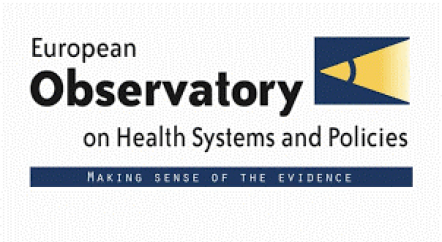
-
A Europe that cares, prepares, protects: Strengthening the EU Health Union (Eurohealth)
2023 Eurohealth (29.3)
16 January 2024
To mark the 2024 Belgian Presidency of the Council of the European Union, the Belgian health presidency team and the European Observatory on Health Systems and Policies worked together to reflect on a selection key priorities for the next Commission’s agenda with regard to the European Health Union. These priorities can be grouped in three thematic clusters: a Europe that cares, prepares, and protects.
The Belgian Minister Vandenbroucke, EU Health Ministers, and expert authors provide perspectives which should encourage debate on the potential ways forward. This issue of the European Observatory's journal is being launched in January 2024 to coincide with the start of the Presidency.
Fold out text to read further Contents includes:
- Foreword
- Editorial
- The promise of a European Health Union
- Ensuring the availability of a sufficient health and care workforce
- Financial access to healthcare
- Comprehensive approach to health and wellbeing
- Towards needs-driven innovation and healthcare policies
- European health investment hub
- What could the EU do to build resilient health systems and resilient, healthy societies?
- Tackling the health workforce crisis: Towards a European health workforce strategy
- Ensuring affordable access to healthcare for everyone in the European Union
- How can the European Union scale-up action on non-communicable disease prevention?
- Identifying disease-specific patient and societal needs to foster needs-driven healthcare
- Revamping the EU's health security framework to manage future health crises
- Building capacity and identifying appropriate support
- EU joint actions 2.0: A booster for health in the EU?
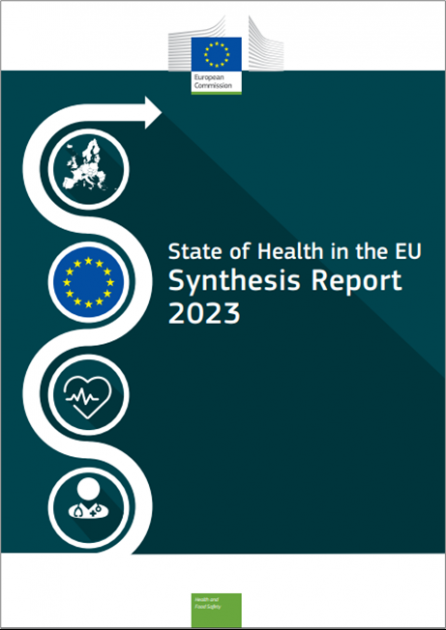
State of Health in the EU
Synthesis report
The Country Health Profiles are accompanied by a Synthesis Report presented by the European Commission, which highlights a selection of horizontal observations based on the analysis of the country profiles.The 2023 edition of the State of Health in the EU’s Synthesis Report consists of two parts.
Part 1 presents a chapter on European health systems’ reforms and investments after the COVID-19 pandemic. The analysis is focused on 3 main takeaways:
- Mental health reforms addressing de-stigmatisation, prevention, treatment and reintegration are needed.
- Closing health gaps by tackling health inequalities across and within countries requires a multi-sectoral approach.
- Investments towards resilient and accessible health systems need continuity, underpinned by robust data collection mechanisms.
Part 2 of the Synthesis Report presents the key findings from the 29 Country Health Profiles prepared by the Organisation for Economic Co-operation and Development (OECD) and the European Observatory on Health Systems and Policies (Observatory).
Back to top
Blogs & newsletters
Interesting blogs to follow and newsletters to subscribe to:
Mental Health Europe
GAMIAN EUROPE - Global Alliance of Mental Illness Advocacy Networks Europe
European Commission Public Health-EU: e-newsletter
European Parliament IMCO (Internal Market Committee)
European Social Network ESN
Global Network of Psychologists for Human Rights
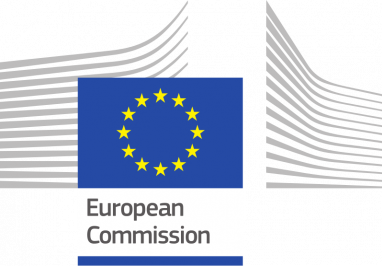
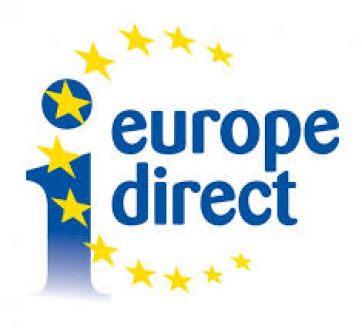
In person:
All over the European Union there are hundreds of Europe Direct information centres. You can find the address of the centre nearest you at: https://europa.eu/european-union/contact_en
On the phone or by email:
Europe Direct is a service that answers your questions about the European Union. You can contact this service:
by freephone: 00 800 6 7 8 9 10 11 (some operators may charge for these calls),
at the following standard number: +32 22999696 or
by email via: https://europa.eu/european-union/contact_en
EU publications
You can download or order free and priced EU publications here
Multiple copies of free publications may be obtained by contacting Europe Direct or your local information centre

EU law and related documents
For access to legal information from the EU, including all EU law since 1952 in all the official language versions, go to EUR-Lex at:
http://eur-lex.europa.eu
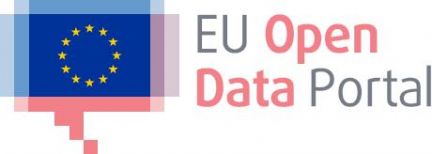
Open data from the EU
The EU Open Data Portal ( http://data.europa.eu/euodp/en)
provides access to datasets from the EU. Data can be downloaded and reused for free, for both commercial and non-commercial purposes.
Back to top
(1)_w680_h474_1.png)
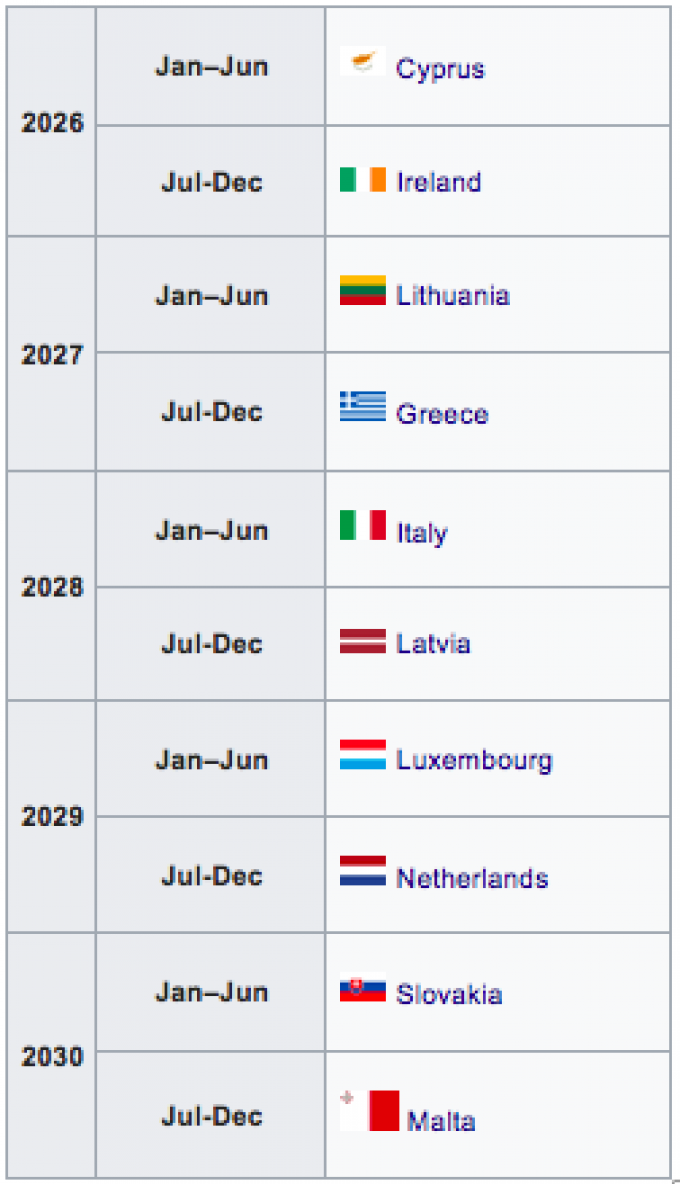
Back to top
(1)_w1700_h406_1.png)
_w438_h554_1.jpg)
start(1)_w732_h420_1_1.jpg)
